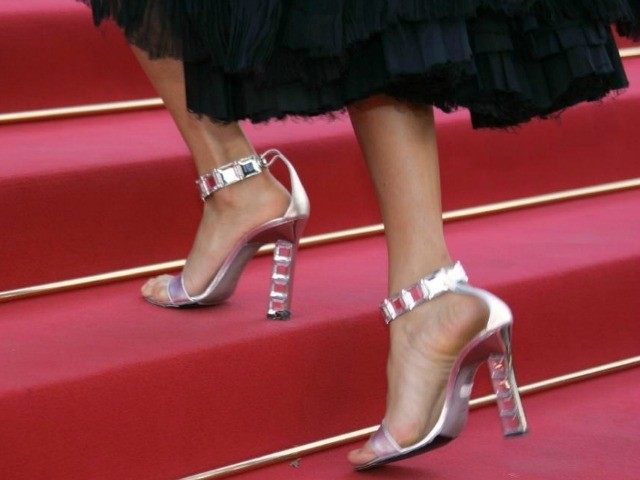Eyebrows were raised when the much awaited Cannes Film Festival stopped numerous women from attending gala screenings due to their inappropriate choice of footwear. The events sees the ‘whose who’ of tinsel town, adorn stunning gowns and high inch stilettos to participate in the event.
Addressing journalists at a press conference, English actress Emily Blunt said it was “very disappointing” to hear that the festival was forcing women to wear high heels. At the same time, festival director Thierry Fremaux denied there was a high-heels enforcement policy. The entire saga has been dubbed “Flategate”.
Social constructs
While the event got tongues wagging on social media, it raises interesting questions about the societal expectations on women. This is just a classic scenario of how a formal function has one feeling delegated to a dress code.
For starters, who came up with the theory that pink is for girls and blue is for boys? According to Katherine Robinson, from an NGO called Gender Links, there are deep rooted hetero-patriarchal norms and “absurd gendered binaries” that remain unchallenged.
These are perpetuated by the socialising scripts society and media expect us to enact, as well as by our very own uncritical enacting and internalising of these ‘norms’.
“Isn’t it absurd that colours, smells and even beverages are gendered?” she pointed out.
“We turn to media for fashion advice and suggestions on how to adorn clothes to events. A scenario like one that took place at Cannes, could set an example of how a sweet 16 birthday party could go. If perhaps your child is invited to a party and doesn’t dress according to the dress code they would be turned away at the door.
Robinson added: “Although it was denied and the veracity of the claim was questioned, instances like this point to a much bigger social issue. People are regularly ignored and/or denied access to needs and wants if they do not conform to the status quo, or a norm that dictates their being in the world.”
Women’s rights, integrity and autonomy are so often discredited and threatened if they do not conform to a narrow and problematic conception of womanhood, femininity and beauty.
“For instance women’s dress is persistently employed to victim blame and to vindicate the perpetrators of rape and abuse. Lesbian or trans-women are persistently denied their rights to health and justice, when they are tuned away from hospitals and police stations because they do not conform to normative and ultimately prejudiced conceptions of gender and sexuality,” Robinson expressed.
Objectification
Amidst the Cannes fiasco, a restaurant in China had a special whereby the shorter your dress or skirt the bigger the discount on your meal would be. This isn’t as shocking as the next statement that was made by the restaurant’s spokesperson who said that girls liked showing of their legs and now they could get more than admirers, but cheap food to.
“This is the ever present commodification, objectification and sexualisation of women’s bodies, which is a cause and effect of gender inequality and the unequal economic power relations that persist between men and women across the globe,” she said.
This constant pressure to be a reflection of society’s and the worlds view holds back the true identity of most of our females. Robinson expressed the negativity of the pressure of having to live up to society’s confines.
“If women who do not conform to the status quo are labelled as ‘abnormal’, of course they are made to feel to feel that way- they are then ‘othered’ and so their being is de-legitimised.”
Challenging societal norms
Growing up, we are exposed to this theory of how if you are wearing sneakers and jeans you are ‘tomboyish’. Many females grow up in the shadow of this title. Parents wonder when they will grow out of it as it is difficult to understand how one can go against the norms of society.
Robinson emphasised that people, as far as possible, should not internalise the ‘inferiority’ society or oppressors attempt to impose on them. Be critical, challenge the unchallenged and resist the minor oppressions that translate into greater oppressions and inequalities.
“People have the right to choose who they are and how they wish to express themselves. We must also use our agony and empower ourselves- know our rights and claim them.” VOC (Najma Bibi Noor Mahomed)






 WhatsApp us
WhatsApp us 

